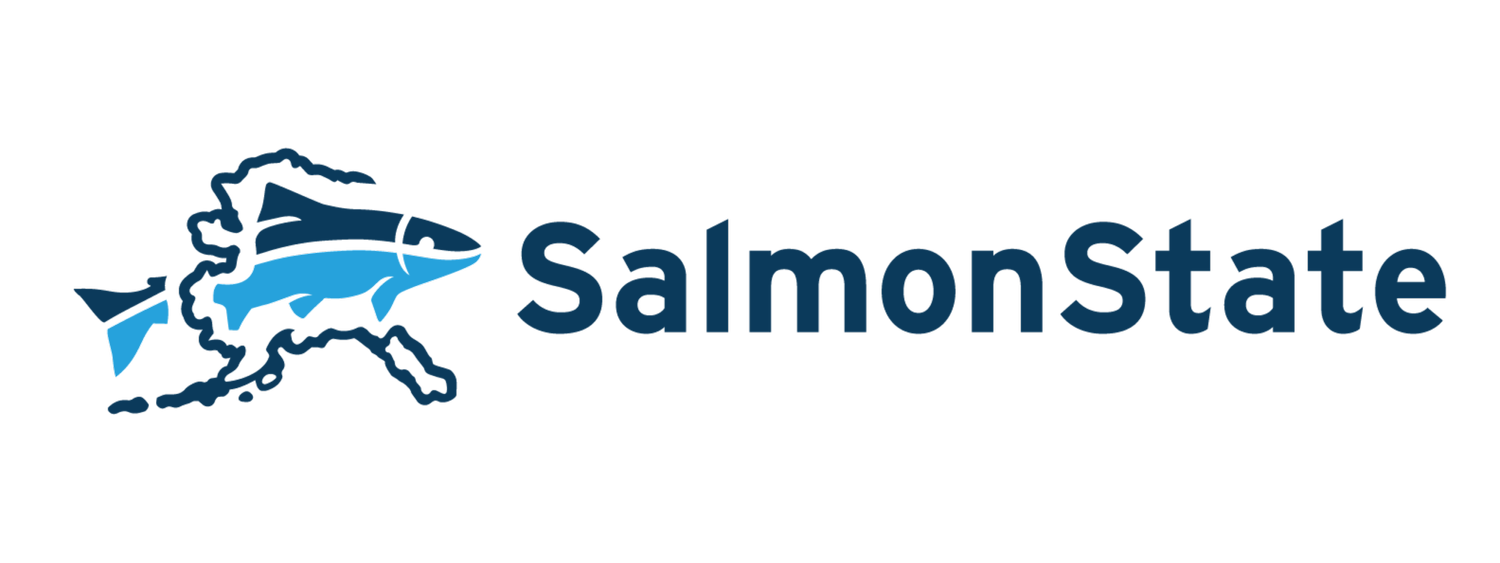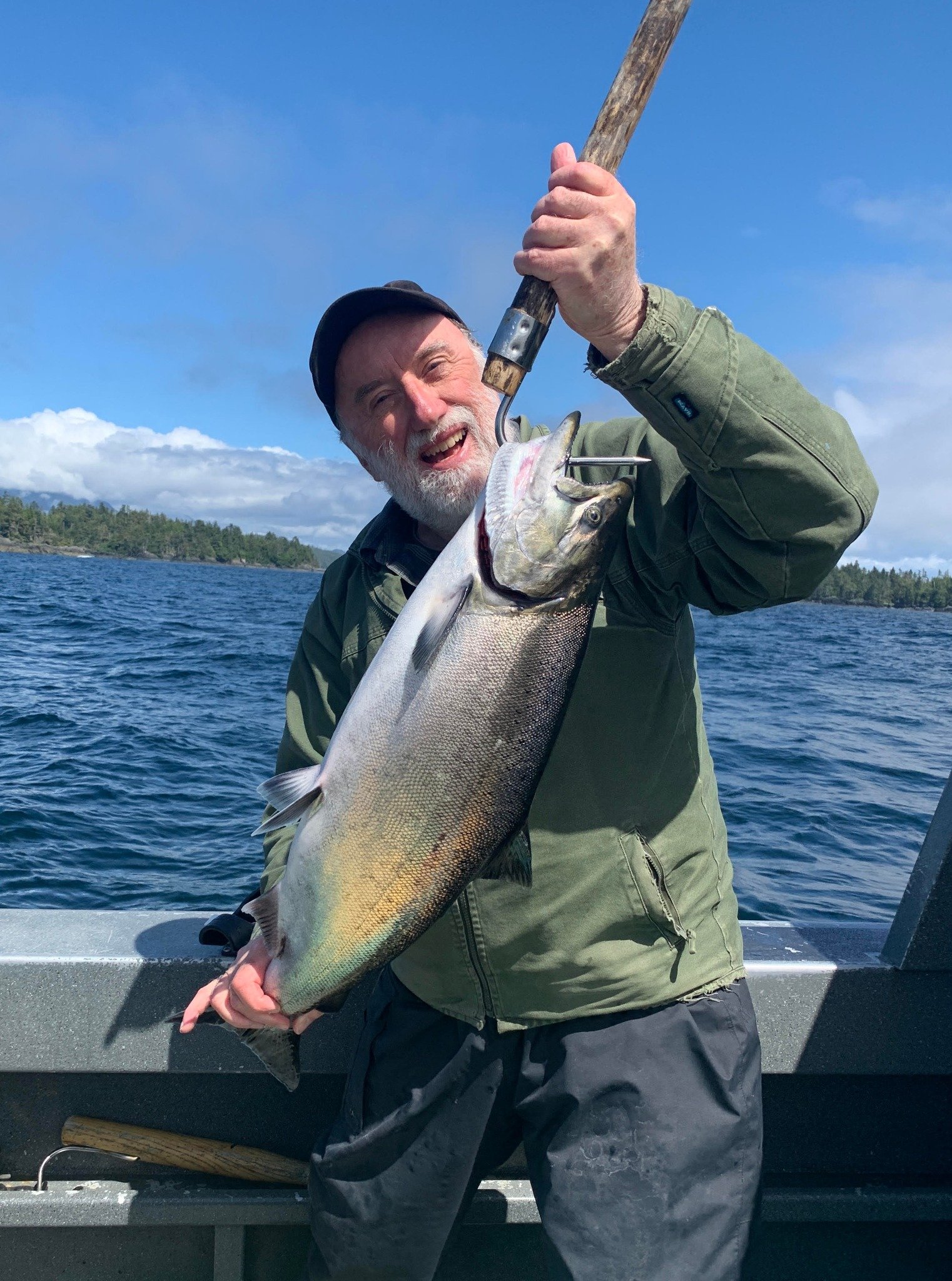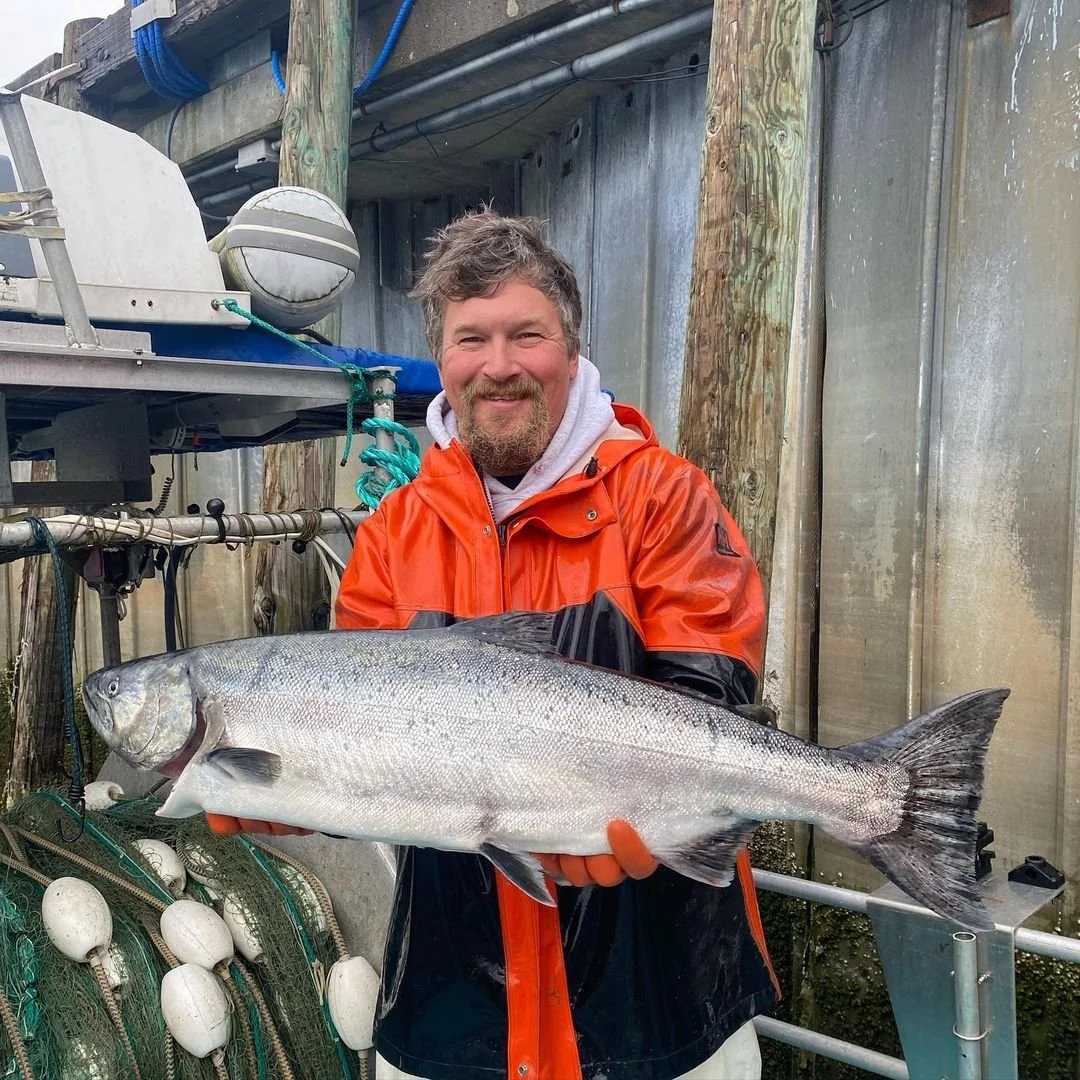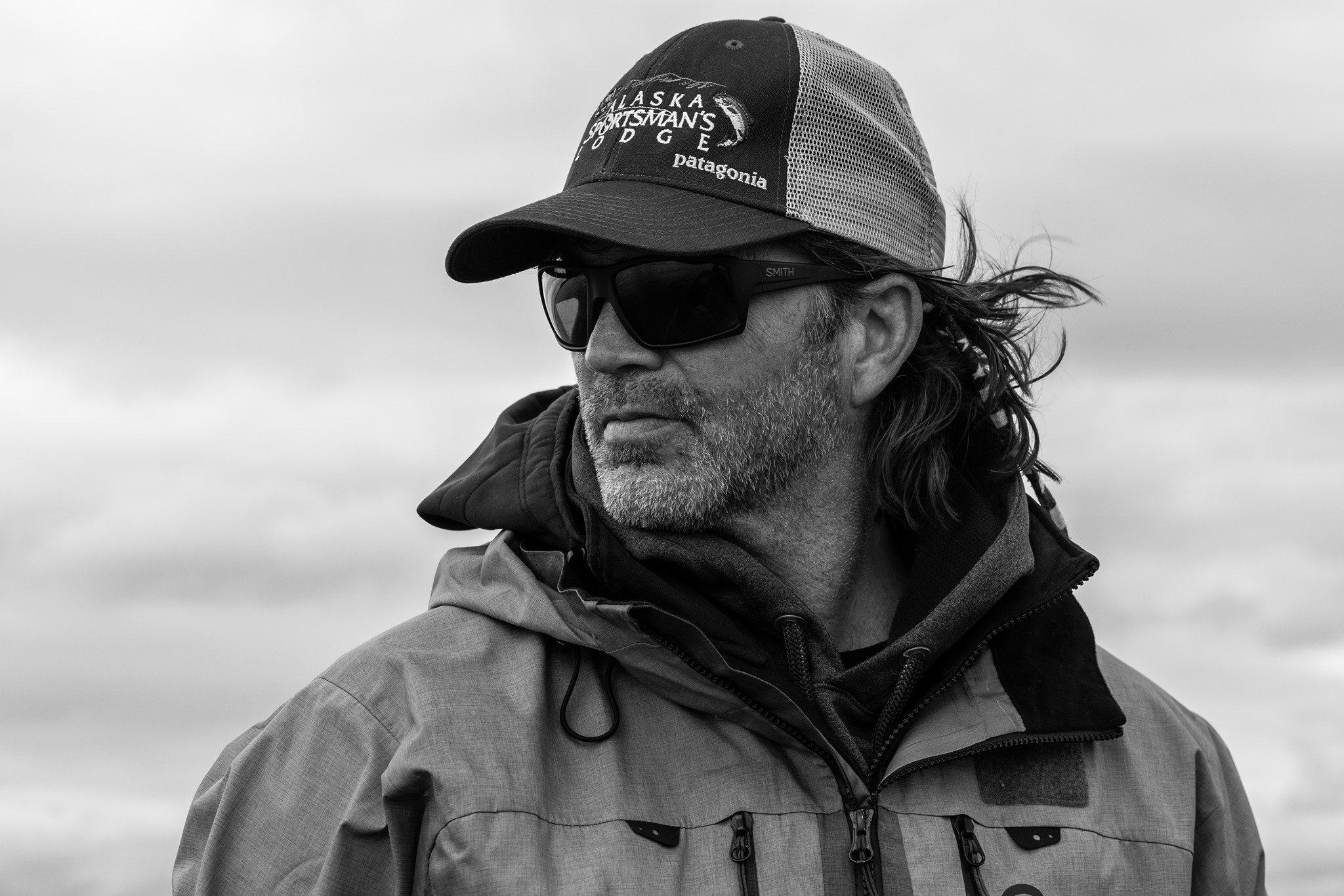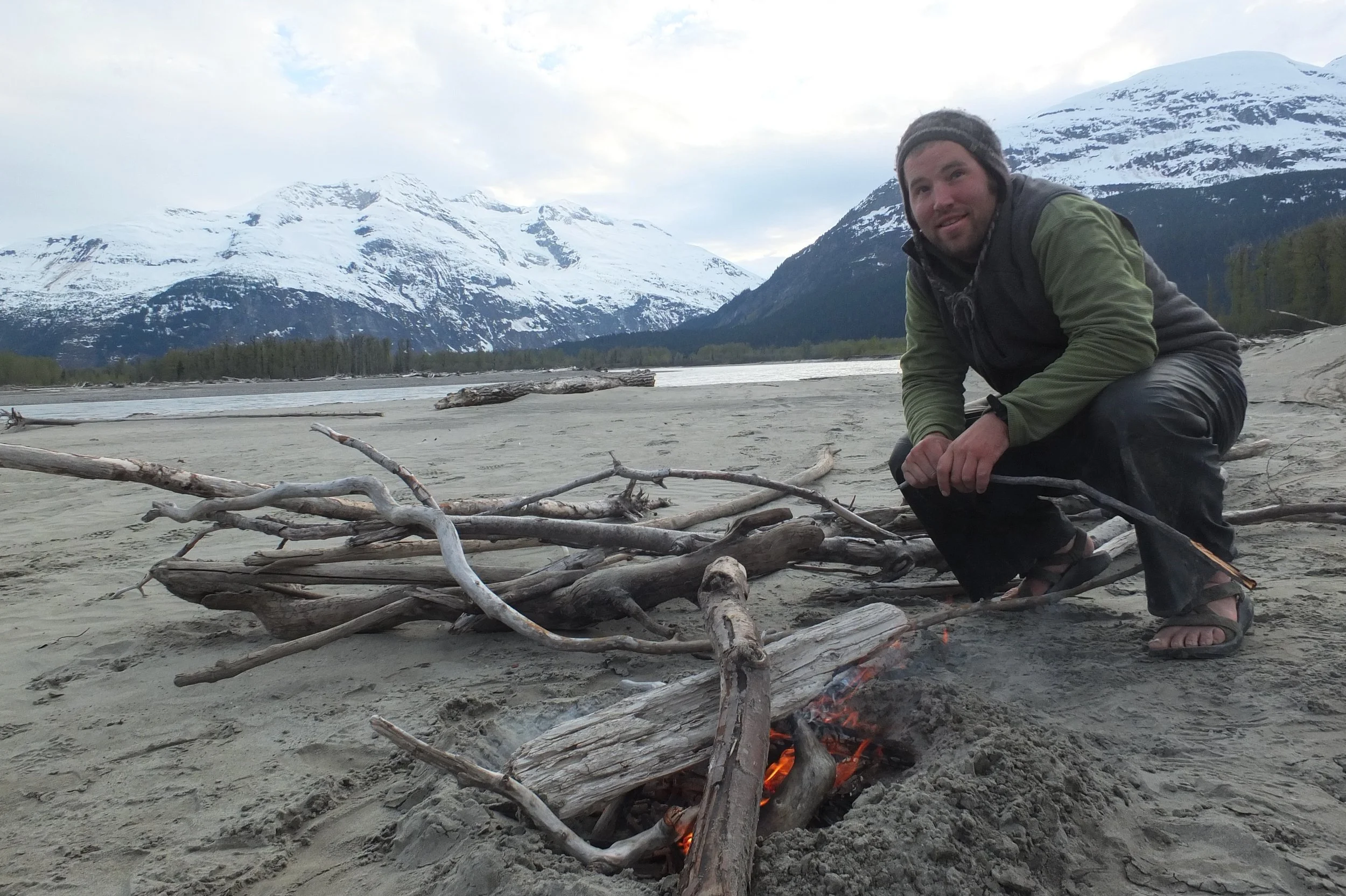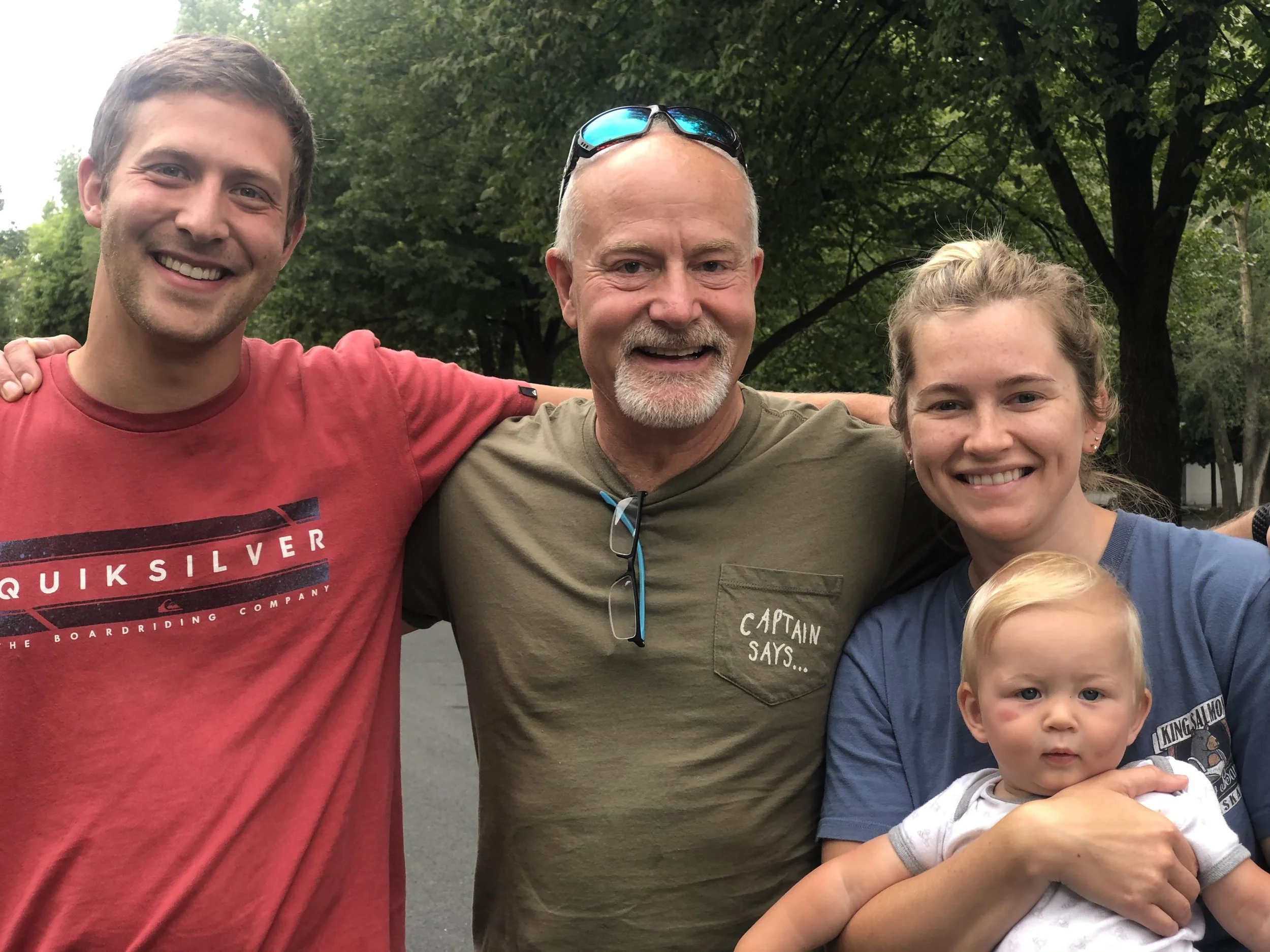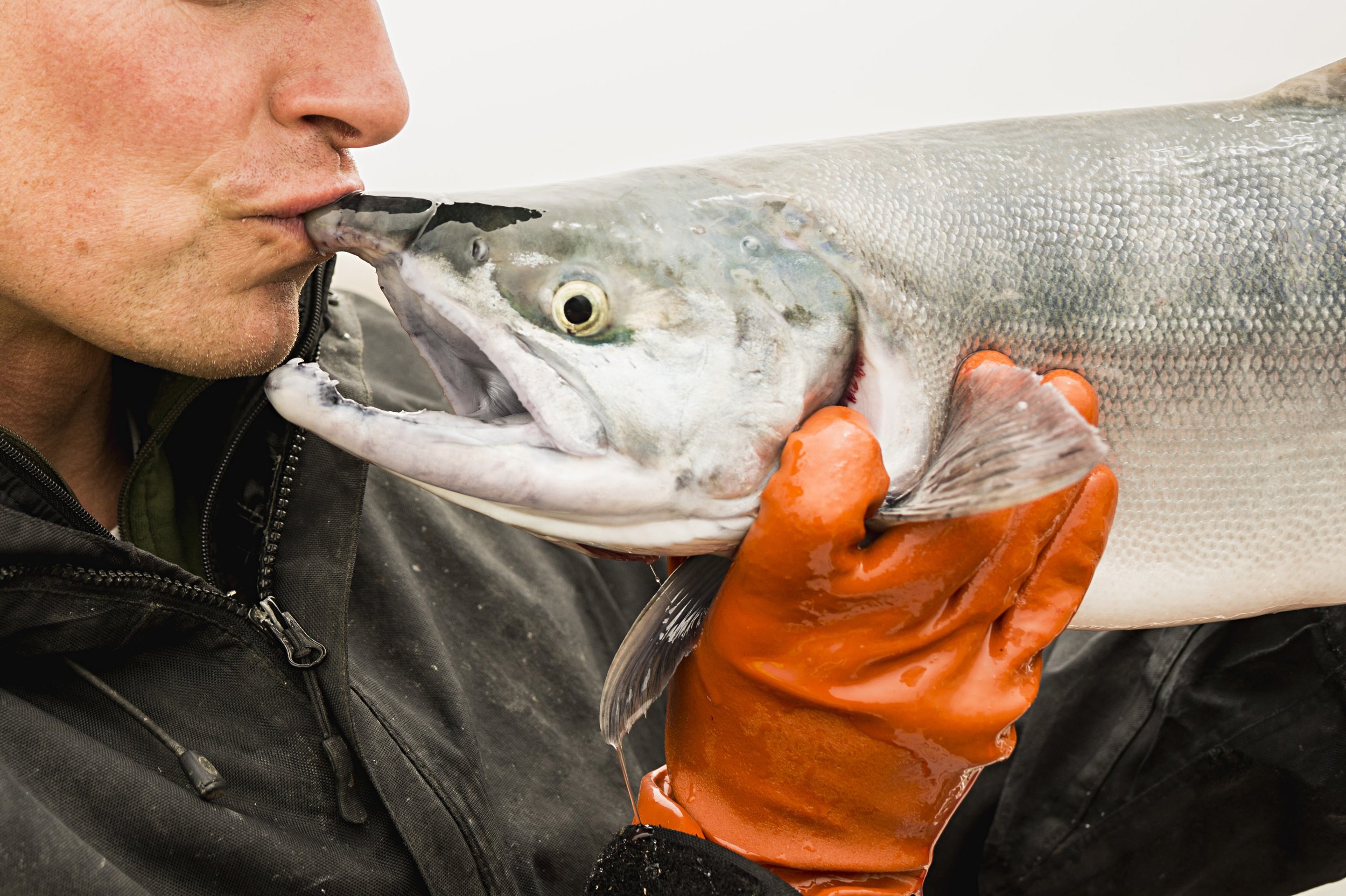
Alaskans are salmon people. Here are our salmon stories.
Axel Kopun
"Salmon is pretty much everything. We eat it every way possible. My whole family. My friends, their families, my aunts, uncles, cousins – everybody in Chignik. You eat it as much as you can. You smoke it, salt it, dry it, freeze it for the winter, can it. When my sister comes down we jar a bunch of fish for her. Salmon puts food on the table, literally and figuratively. We eat them and we make money to buy all of the other stuff. It puts a roof over our head.”
Kim Nesbitt
"I grew up in New Hampshire and spent a lot of time outside in the White Mountains, which are gorgeous. It was really nice, but even then, I was always looking for something a little more.”
Ray Troll
"If you walk into the Tongass for the first time, you might think it all looks the same. But then, you begin to learn more. It’s a magical and wonderful place. It’s not untouched, but parts of it still have a completely intact ecosystem with ancient old growth trees. It’s a privilege to live on the traditional land of the Tlingit people.”
LaVern Beier
"In 1970, I was 17, and I thought I was on my way to Vietnam. I wanted to see Southeast Alaska before Southeast Asia. So I saved up $262 and bought a standby ticket to Petersburg, to visit my sister and brother-in-law. After that visit, I planned to join the Navy before I turned 18 and got drafted. I had a lot of friends who went to Vietnam and came back not in one piece, or not at all.”
Megan Corazza
"I’m a lifelong fisherman. My parents raised me on a fishing boat since I was 17 days old, commercial fishing for salmon and halibut.”
Michelle Ravenmoon
“When I was growing up out at Pope Vannoy, on the south side of Lake Iliamna, we would swim a lot in the summertime, and I really enjoyed fishing with my Grandpa. I just had a willow pole with a hook on it — it was pretty simple. But we must have had a lot of trout then, because it was so easy to catch fish. I remember one day I caught two at the same time on one hook. I was so impressed!”
Trixie Bennett
“I come from a family of nine children. Our life pretty much revolved around salmon, because we commercial fished. Growing up, we didn’t have a car, but when we got older and my dad wasn’t fishing, we would drive around in my car and look at all the fish in the different creeks between Ketchikan and Wrangell, wherever we’d go.”
Elsa Sebastian
"I am so grateful for the way I was raised— we were completely off grid. We didn’t have TV, didn’t have internet, and the bears would chew through the phone cables, so sometimes we didn’t even have a phone.”
Tyson Fick
“I caught my first king salmon on the Kenai River on my eighth birthday. It was kind of funny, because my folks were there with their friends, and hanging out around the fire, and I was so fired up to go fishing that I wanted to go at 5:30 in the morning. I was ready. But they said their friend whose boat they were on told them ‘Salmon here don’t even bite until 8:00, so you don’t have to worry about it. We can just hang out.’”
Tom Reimchen
“The whole idea of the salmon forest being connected is that the nitrogen that salmon accumulate in the middle of the Pacific Ocean ultimately ends up in the canopy in these ancient forests, and spiders in the canopy still have that nitrogen from the middle of the ocean, it’s sort of, its eliminated the idea of the land and the sea being two separate things. I had no concept of this at all before.”
Brian Kraft
"The first time I laid eyes on the Kvichak River was mid-May 1994, and the clarity of the river was unbelievable. I had never seen anything so clear, and there was so much of it— a massive wide bodied river flowing gin clear. Mesmerizing.”
Bjorn Dihle
"A few years ago a friend and I floated down the Inklin, then down the Taku, and paddled home to Juneau. We felt like we were beating winter out of there. The leaves had fallen, and it was pretty low water. Super beautiful. The canyon on the Inklin might be one of my favorite memories on the Taku.”
Holly Enderle
“I grew up power-trolling with my dad in the Cross Sound area and fell in love with the fishery at a young age. I was inspired to buy a permit at 21 and fished with my boyfriend for two years before taking the plunge into buying the F/V Pacific Dream.”
Lincoln Bean
“I’ve been on the Organized Village of Kake council, and in health care, for quite a while now. With the transboundary, there’s a close tie-in to health, and the impact mining could have. If we ever have a catastrophic event with a tailings dam on a transboundary river, it could affect all of our livelihood, and our traditional foods. Seaweed, crab, you name it.”
George Anderson
“Growing up, I spent summers in Chignik and winters in Kodiak. We’d cross Shelikof Strait, get the boats and gear ready, fish hard in the commercial season, and then catch and put away our subsistence harvest for the winter.”
Melanie Brown
“Salmon are everything. They provide sustenance for us. In many ways too, salmon have been teachers. I’ve just grown as a human in ways that I think are really important to grow as a human, and I feel like it’s because of my salmon life that I’ve been able to do that.”
Mark Niver
“I got out of high school. I got on the oil pipeline with BP. And within a year, I was buying a Bristol Bay boat permit with my brothers, and we all started fishing. I got married, raised a family, and my three sons all starting working on the boat when they were 10 years old.”
Drew Hamilton
“Some of the most iconic bear images ever captured are from Bristol Bay. You think of the Bristol Bay fish that go up the Brooks River— that is the most popular destination, maybe in the world. So when you think of Alaska, that image of the bear snatching the salmon out of the air at Brooks Falls is close to the top.”
Triston Chaney
“Sometimes with Bristol Bay, you don’t know until you know. You’ve got to just experience the fishing and the beauty of the area. Pictures and even videos don’t do it justice. Not even close. Once you get up there, it’s a totally different feeling. You see everything, you’re experiencing everything, you feel everything— it’s so much different.”
Zach LaPerriere
“I grew up in a mill town, Ketchikan. The Tongass was having a quarter of a billion board feet logged a year at that point. One year I’d be in a bay, and it would be amazing, wild old growth. The next year it would be a logging camp and then it would just be a clearcut. I saw a fair bit of that growing up— and kids don’t question that much. So I experienced it, and by the time I was a teenager, I started thinking, ‘You know what, this doesn’t seem to be the best idea, to be cutting a thousand acres at a time.’ I saw my fair share of landslides, washed out rivers, that kind of thing. That’s where my interest in conservation started.”
